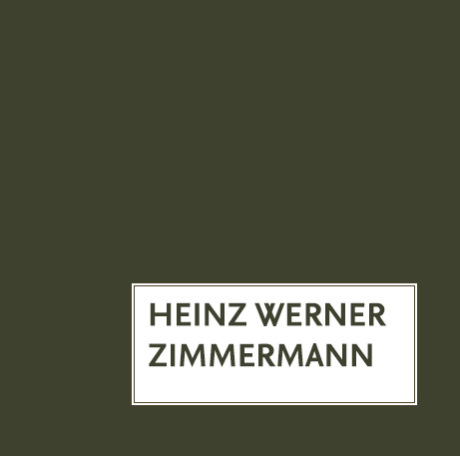
Born in Freiburg (Breisgau) on August 11, 1930, H.W. Zimmermann studied composition under Julius Weismann (1879–1950) and Wolfgang Fortner (1907–1987) as well as musicology under Thrasyboulos Georgiades at the University of Heidelberg. In 1954 he became Fortner’s successor as lecturer for composition and music theory at the Institute for Protestant Church Music in Heidelberg. This is also the place where, beginning in 1956, his first motets for choir and plucked double bass showing a strong infl uence of Jazz and the African American Spiritual came into being.In 1963 he became appointed the director of the School for Church Music in Spandau. From there his reputation as an educator also spread throughout the USA Several American publishing houses competed for translations of his German works as well as compositions originally written in English. In 1967 he was awarded with an honorary doctoral degree from Wittenberg University in Springfield (OH/USA), later he received the Wittenberg Award from the Washington (D.C.) based Luther Institute. In Germany, Zimmermann garnered several prizes for his compositions. He was decorated with the Villa Massimo Stipend (Rome, 1965–66). In 1975 he received a call from the Conservatory of Frankfurt am Main to fill a professorship for composition and music theory. Currently he is retired, living in Oberursel im Taunus near Frankfurt am Main. In 2009 the university of Leipzig awarded him the laureate of Dr. theol. h.c.Today Heinz Werner Zimmermann’s works are performed all over the world. With his motets accompanied with plucked double bass, his psalms for organ, as well as his hymns in prose he has developed new compositional styles. Undoubtedly, his a-cappella choral works (with and without accompanying double bass) constitute his most popular compositions, of which this CD gives a representative retrospective. By now his five oratorial works have become equally popular: the 150th Psalm, the Missa Profana (premiered fi fteen times on three diff erent continents since its appearance), the Bible of Spirituals, the Symphonia Sacra in five movements, which premiered in the Leipzig Gewandhaus in 1997, and the Te Deum, making its debut at the Berlin Philharmonie in 2000.Komposition und Kontemplation (2000) and Komposition und Reflexion (2005) may be considered Heinz Werner Zimmermann’s most important theoretical monographs.